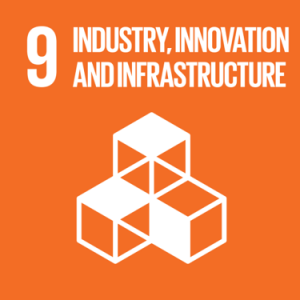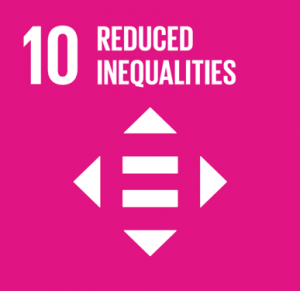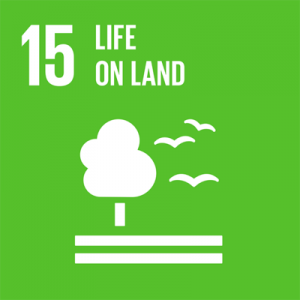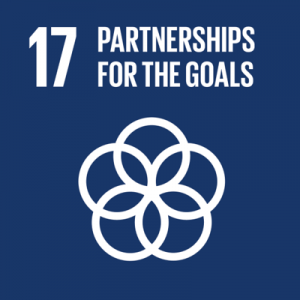SUSTAINABLE DEVELOPMENT GOALS
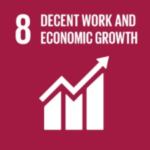
SDG 8: DECENT WORK AND ECONOMIC GROWTH
“Decent work in safe and stable conditions is a vital component of helping people out of poverty, with the related aspects of reducing hunger and increasing health. The rise of precarious employment, modern slavery, and uneven growth has created threats to a sustainable future. Universities as employers can lead the way, as teachers can educate for the future, and as innovators can develop new and fairer ways of working.”
(THE Impact Rankings)
Employment practices
As a public university in Indonesia, IPB University follows the government’s regulations regarding its wage system. According to the current government policy, employee income consists of a basic salary and various allowances. The basic salary is determined by an employee’s rank and grade, with periodic increases based on years of service. Allowances vary depending on the nature of the work and may include family, position, performance, and cost-of-living allowances.
The basic salary for civil servants (PNS) does not follow the regional minimum wage (UMR), as it is uniformly set by the government based on rank and length of service across Indonesia. However, the total income of civil servants can differ due to additional allowances that depend on the institution, position, and regional factors. These allowances especially performance-based ones can result in total earnings that exceed the regional minimum wage. The Indonesian Central Bureau of Statistics (BPS) also establishes a standard for a decent living to guide wage adequacy across the country.
IPB University is committed to providing salaries in full compliance with government regulations while ensuring a decent and dignified standard of living for all its employees. This principle applies to all categories of workers at the university, including academic faculty, administrative staff, support personnel, and other employees.
IPB University recognizes all forms of labor unions on campus and supports their legitimate activities. Prominent examples include FORTENDIK (Forum Tenaga Kependidikan), which represents non-academic staff and advocates for their welfare, career development, and professionalism, as well as Agrianita IPB, an organization that unites employees and/or their spouses to promote social engagement, education, and family well-being through various empowerment programs.

The university adopts an inclusive approach that ensures all employees regardless of gender, nationality, or employment status have equal opportunities to express their views and participate in union activities. IPB University values the role of these unions in fostering a fair, healthy, and productive work environment and remains committed to maintaining open, constructive collaboration to uphold workers’ rights and promote a supportive campus community.
IPB University has a clear policy commitment against discrimination in the workplace, which is formally outlined in its governing regulations. Based on IPB University Rector Regulation Number 7 of 2021 (page 5–7),concerning Management of IPB University Employees, the university’s human resources management is founded on the principle of non-discrimination. IPB University maintains a clear and comprehensive policy aimed at eliminating all forms of discrimination in the management of its personnel. This commitment is articulated through the core principle of non-discrimination in the governing statute.
Specifically, the university mandates that the management of its employees, covering all staff and faculty, must not differentiate treatment based on gender, ethnicity, religion, race, and group/class (golongan). This foundational principle ensures that all employment aspects including recruitment, career development, and daily working life are executed fairly and equitably. The university’s policy aligns with national standards by upholding the value of justice and equality, reflecting a commitment to ensuring all employees have an equal opportunity to fulfill their roles. By explicitly prohibiting differential treatment based on these key characteristics, IPB University demonstrates its dedication to fostering an inclusive, safe, and professional working environment for every member of the academic community.
IPB University has a strong policy commitment against all forms of forced labor, modern slavery, human trafficking, and child labor. As a state university under the Ministry of Education, Culture, Research, and Technology of the Republic of Indonesia, IPB University adheres strictly to national labor laws and regulations that prohibit such practices, including Law No. 6 of 2023 on Manpower and Law No. 35 of 2014 on Child Protection.
The university ensures that all recruitment and employment processes are conducted transparently, fairly, and in accordance with government standards. All employees academic and non-academic are of legal working age and employed based on voluntary and lawful agreements.
In addition, IPB University promotes ethical conduct, equality, and human rights through institutional policies and continuous awareness programs. These commitments reflect the university’s dedication to maintaining a safe, respectful, and dignified work and learning environment, free from any form of exploitation or coercion.
IPB University ensures that all procurement and supply chain activities comply with ethical, legal, and sustainability standards. As a public institution, IPB adheres to the national procurement regulations set by the Government of Indonesia through the Lembaga Kebijakan Pengadaan Barang/Jasa Pemerintah (LKPP). These regulations require transparency, fairness, and accountability while strictly prohibiting corruption, collusion, and exploitation in any form.
The university prioritizes suppliers and partners who demonstrate good labor practices, environmental responsibility, and human rights compliance, aligning with IPB’s broader commitment to sustainability and ethical governance in all institutional operations.
There is no gender pay gap issue at our university. As a public university in Indonesia, IPB University follows the national government’s standardized wage system. The compensation structure consists of a basic salary determined by rank and years of service, along with various allowances such as family, position, performance, and cost-of-living benefits. This system promotes transparency, decent work conditions, and economic fairness for all employees, supporting inclusive and sustainable economic growth within the university community. Therefore, gender does not influence pay levels, ensuring equal compensation for all employees in equivalent positions.
IPB University does not specifically track pay scale gender equity, as there is no policy or practice that differentiates pay based on gender. As a public institution under the Government of Indonesia, the university strictly adheres to the national civil service remuneration system, which standardizes salaries and allowances according to position, rank, and years of service. This system ensures that all employees, regardless of gender, receive equal pay for equivalent roles and responsibilities. Consequently, there is no gender-based pay gap within the university, and fair compensation practices are maintained through transparent government regulations.
IPB University has a formal process in place for employees to appeal matters related to employee rights, remuneration, and other employment issues. As a public university under the Government of Indonesia, IPB follows the national civil service regulations (ASN system), which provide clear mechanisms for grievance handling and administrative appeals. Employees may submit their concerns through internal channels such as the Directorate of Human Resources (Direktorat Sumber Daya Manusia), which facilitates mediation and ensures that all complaints are handled fairly and transparently.
If necessary, employees also have the right to escalate their cases to higher authorities within the Ministry of Higher Education, Science, and Technology or to the Ministry of State Apparatus Utilization and Bureaucratic Reform (KemenPANRB) or National Civil Service Agency (Badan Kepegawaian Negara). These established procedures safeguard employee rights, promote fair treatment, and support a healthy and accountable workplace environment in line with the principles of decent work.
IPB University fully recognizes and upholds labor rights, including the freedom of association and collective bargaining, for all employees regardless of gender or nationality. As a public university under the Government of Indonesia, IPB follows national labor and civil service laws that guarantee these rights. Employees are free to form and join professional associations or unions that represent their interests.

Examples include FORTENDIK (Forum Tenaga Kependidikan), which represents administrative and support staff, and Agrianita IPB, a women’s organization that supports the welfare and empowerment of female employees and families within the university community. IPB University encourages open dialogue between management and employee organizations to ensure that workplace policies are fair, inclusive, and responsive to staff needs. These practices reflect IPB’s strong commitment to decent work principles and equality for all employees, including women and international staff.
SDG 8 IN NUMBER
3,371
Number of employees
1,491
Number of academic staff
Rp 336,596,346
University expenditure (PPP-adjusted)**
Rp 1,750,301,000,000
University expenditure
35,683
Number of students
16,745
Number of students with work placements for more than a month
3,093
Number of employees on contracts of over 24 months
RELATED NEWS
It seems we can't find what you're looking for.









